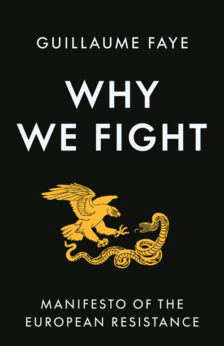From an archeofuturist and metapagan perspective, the seasons of the year have ceased to be effectively important for daily life. In the 21st century, with technological and scientific advances and the domination (or subjugation) of the forces of nature, there are fewer and fewer things that humans depend on in terms of seasonal changes. Perhaps the most visible effects are the appearance of allergies and other bodily reactions, or the ability to contemplate the blooming and revival of flora, and enjoy the landscapes that Gaia offers us.
We have stopped planting, or perhaps more accurately, we have stopped relying on seasons to carry out such productive work. In another 100 years, all of that may be a thing of the past, and only a privilege for those who enjoy the most “natural” things — overlooking the fact that farming and animal domestication are unnatural and the original sin.
We are the children of hubris, for the excess and transgression of the divine limits imposed by the gods have been the hallmark of humanity, especially European peoples. The archetype of Prometheus, so admired by poets of all time, is the faithful representation of hubris and its confrontation with the eternal iron laws more suitable for resignation to the divine. Consider the poem, “Das Göttliche” (The Divine), from Goethe’s final stage. Instead of pursuing an infinite excess, as he did during his Sturm und Drang (Storm and Urge) phase, Goethe discovers the greatness of limitation, a realization that puts man on the same level as the gods:
Nach ewigen, ehrnen,
Großen Gesetzen
Müssen wir alle
Unseres Daseins
Kreise vollenden.Nur allein der Mensch
Vermag das Unmögliche:
Er unterscheidet,
Wählet und richtet;
Er kann dem Augenblick
Dauer verleihen.As the eternal
Great iron law requires
We must all
Complete the cycle
Of our existence.Only we
Can do the impossible:
We differentiate,
Choose and judge;
We make the moment
Lasting.
However, we have not yet reached the renunciation of hubris, which many consider a characteristic of dying cultures and static ones. Archeofuturism is metapagan and anti-conservative: it does not resign itself to maintaining and retaining a historical moment “just because,” since metamorphosis is part of our identity. Thus, although Spring no longer holds the same meaning it had centuries ago, Gaia invites us to admire it and realize that the presence of hubris should not be synonymous with destruction or returning to the ecosystem only as a vulgar source of resources to be transformed into technology (useful, of course), but also as a resource in itself, whose beauty of landscapes and biological diversity is also a way to meditate and be in contact with ourselves, with our animal side, with the sensitive, with the Homeric triad: nature as foundation, excellence as goal, beauty as horizon.
Spring is when the Iberian goddess Iscallis appears with her nascent cornucopia from the jaws of the snake, symbol of the Earth, for fertility comes from its bowels, from the crescent moon and the Eternal Feminine, celebrating new hopes and new beginnings.








When I look around the city I live in I see no beauty: obese tattooed women in torn jeans with moronic children LBGQT+*-XYZ flags flying in nearly every shop. on government buildings.Seagulls splatterings all across the pavements…